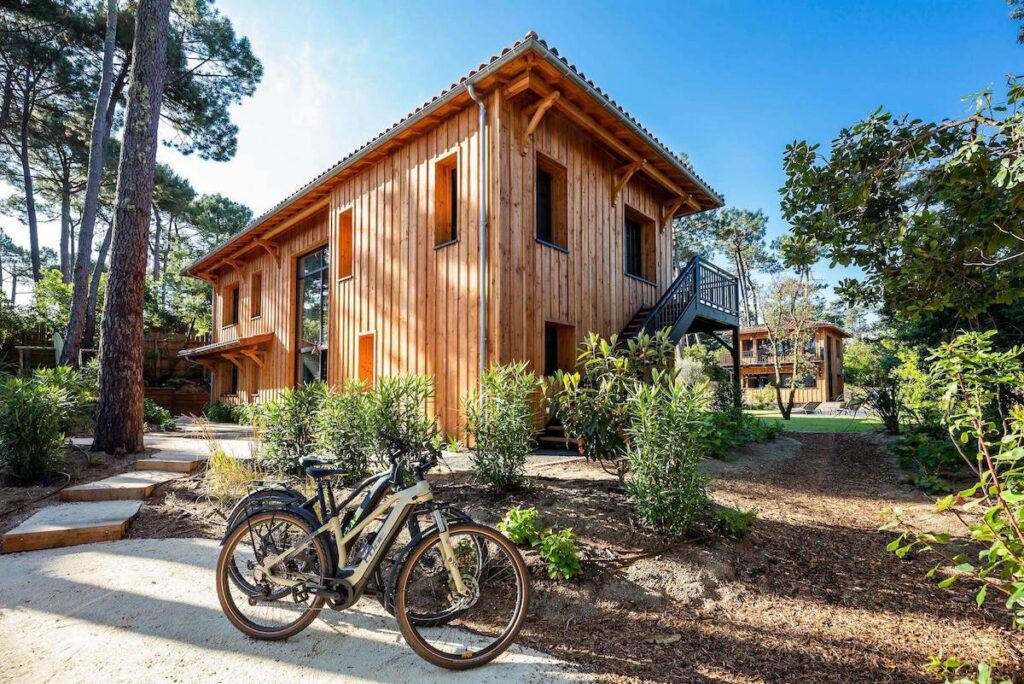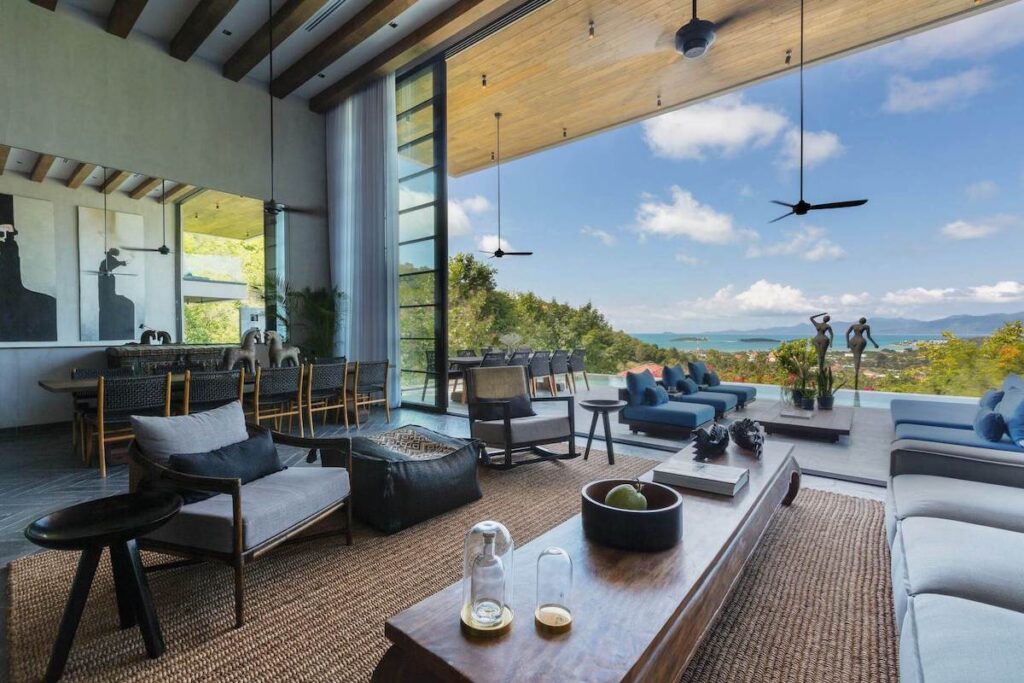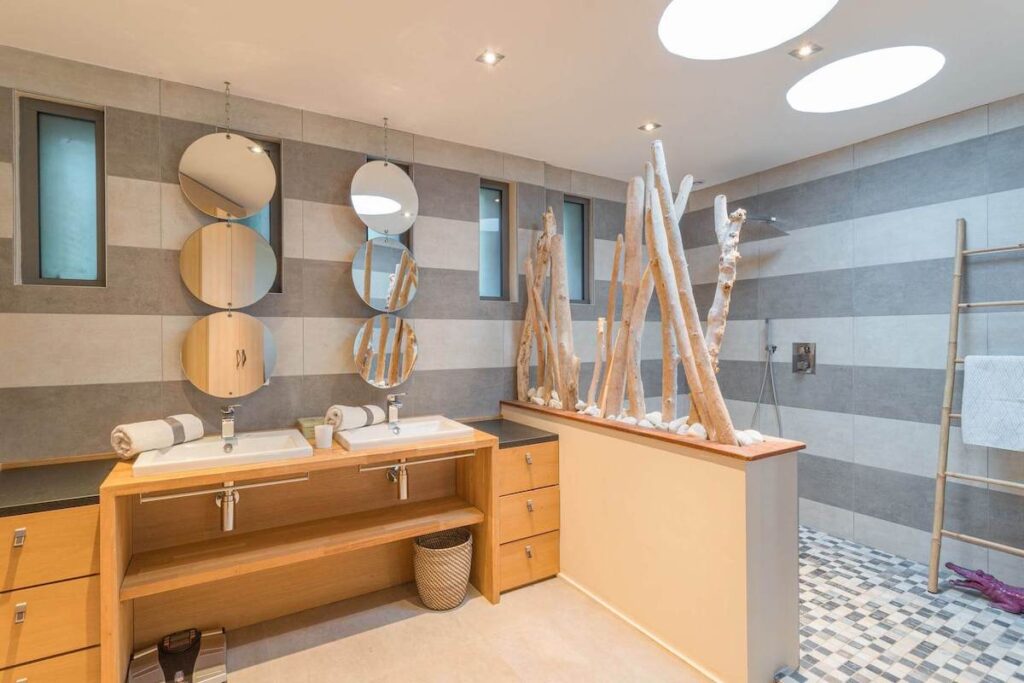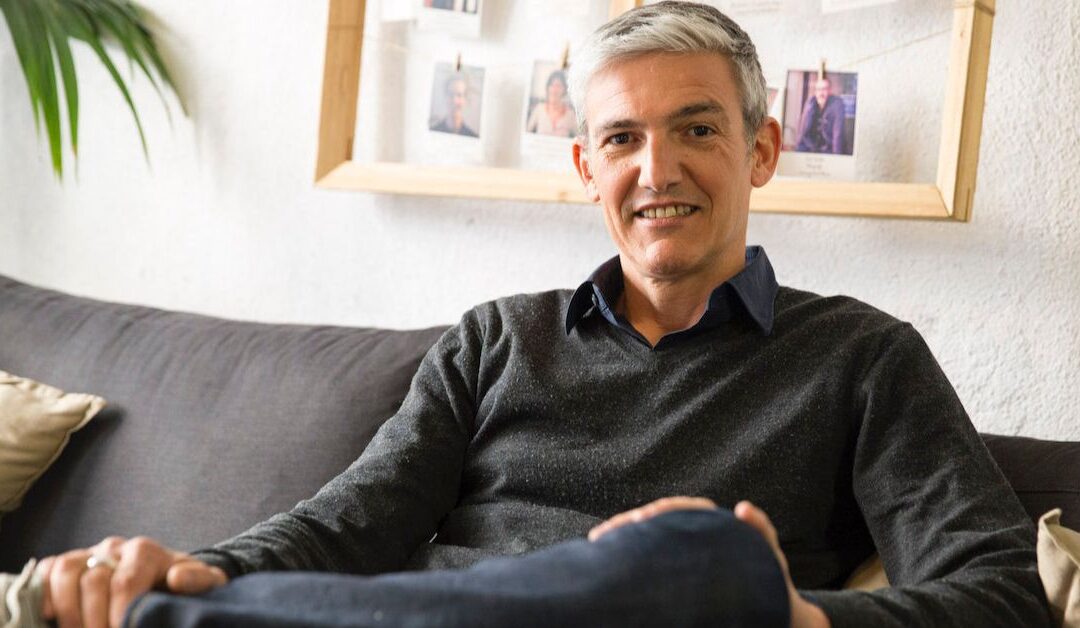Updated on July 20, 2023
Early in his career, vacation rental entrepreneur Marc Ribail learned the power of making hospitality into a transformative experience for guests.
“When you touch a guest’s conscience, that is a transformative experience,” he said.
Increasing transformative experiences is the motivation behind QALIA, a responsible tourism standard specifically for luxury vacation rentals such as villas, chalets, lodges, private islands, and castles.
Marc symbolically launched QALIA on Earth Day, April 22, 2023. The organization’s name is a variation of the philosophical term qualia, meaning “the nature of subjective, conscious experience.”
Supporting the community in Thailand
His first exposure to transformative hospitality happened when he worked as the chief operations officer at a luxury property management company in Thailand.
There, he saw the tremendous difference that ethical tourism practices and corporate social responsibility programs could make in a community.
With 300 employees, the company was the largest employer on the island of Koh Samui. The company paid for their employees’ private health insurance and school tuition for their children. They also sourced locally produced products and locally harvested food for the luxury villas and homes and filled the gardens with endemic plants.
“When you work outside of Europe, you are very aware of the impact you have on communities,” Marc said in an interview on The Green Path Podcast from his home in Avignon, France.
The corporate social responsibility program “was a way to show gratitude for the opportunity to be able to work with amazing people in Thailand and give back to them, their families, and schools.”
Transformative vacation rental entrepreneurship
The values associated with ethical tourism stuck with Marc when he became a vacation rental entrepreneur, and they eventually helped shape the philosophy behind QALIA.
Since 2013, Marc has been operating Unique Retreats, a bespoke consultancy for independent owners and managers who want to create a unique brand for their private villa and list the property on a trusted network of specialized luxury villa agencies.
In his personal life, he lives in a modest home and tries to reduce his environmental footprint by using a green energy supplier that sources 100% renewable energy, eating mostly vegetarian food, working from home, and carpooling his children to school.
During the Covid pandemic, however, Marc started to brainstorm ways he could make a bigger difference in the lives of others and in the environment.
He stumbled across a few inspiring articles about luxury and sustainability, Marc recounted. “I thought, I know luxury villas. I can learn about sustainability. And so I did a lot of digging, a lot of searching, research, hours of videos and articles, readings, and courses on sustainability before I launched the QALIA framework.”

Responsible tourism endorsement levels
QALIA offers three different levels of endorsements that allow members to meet the criteria gradually over time: Essentials, Pledge, and Excellence.
The Excellence level requires meeting a minimum of 85% of the 88 criteria based on the United Nations 17 Sustainable Development Goals and the framework from the Global Sustainable Tourism Council.
The first level, Essentials, focuses exclusively on operational matters without any capital investment, has 37 criteria, and requires a 100% passing score.
The Pledge level, with 35 criteria, is the bridge between Essentials and Excellence and focuses on social responsibility and community engagement.
These criteria go beyond environmental sustainability addressing problems such as destination management, social responsibility, and more important topics relevant to the impact of tourism.
Vacation rental owners or operators, who are called members, earn each endorsement after meeting the criteria. Over time, they may elect to commit to a continuous improvement plan and progress through the Pledge and Excellence levels.

Accountability partner
The endorsement process begins with an interview to find out what the property owner or operator’s motivation is and where they are at with their practices and policies. Then QALIA helps them develop a sustainability plan and guides them through implementation.
“We actually act as the accountability partner,” Marc said.
There are regular checkups to monitor their progress in implementing the plan, and QALIA is there to provide any support that is needed. That could mean finding local suppliers or giving advice on operations.
Once a property has implemented the plan, QALIA validates the practices through onsite inspections, or the villa operator can submit evidence through the company’s online platform, including photos, video footage, and receipts.
In some cases, larger property management companies or luxury villa agencies want to tackle a project that is related to specific needs in their destinations. QALIA then provides ad-hoc consultancy services to complete that project.
“It could be they want to support education, or reforestation, or protection of the oceans or whatever,” Marc said. “So we help them to implement a framework that is customized to their mission and inventory, that is bespoke to them, without necessarily following the QALIA framework. We can then help validate the practices within their company and/or portfolio.”
QALIA is one of two vacation rental sustainability validation programs on the market. The main difference between QALIA and the other endorsement by Sustonica is that QALIA focuses on the niche of luxury vacation rentals and requires a much higher level of compliance with criteria to demonstrate their leadership in hospitality and responsible tourism.
“Of course, some criteria are not possible or feasible within certain destinations, or because of the type of property or the way the property is, therefore, we discard these criteria so as not to penalize the properties that are going through the process,” Marc said.
As of July 2023, QALIA was in the process of validating their first six properties – two in France and four in Thailand.

Staying on the sustainability course
Some of the messaging surrounding sustainability can induce anxiety, Marc said. “And this is scaring people away because people think, ‘Oh, my God, I’ve got to be carbon neutral or net zero. I’ve got to be perfect. Otherwise, I’m going to be labeled as greenwashing, which is absolutely not the case.”
He encourages vacation rental operators to start with a mindset, “I’m going to do my best step-by-step every day. It’s a journey, and imperfection is perfection. That’s why we use the term responsible or ethical tourism, because to make one property sustainable is next to impossible unless it has been designed and thought through from the beginning. And that would mean no swimming pool and no AC.”
More transformative experiences
An important part of implementing a sustainability plan is bringing the experience to the guests.
“We are trying to bring an elevated experience, a transformative experience to the guests that goes beyond transactional,” Marc said. “Transactional is when you get a booking, you pay with a credit card, and then you check in anonymously.”
During these kinds of transactions, “there’s no feeling; there’s no emotions,” he said.
“We want guests’ experiences to be experiential and transformational. With an experiential stay, you create some surprises, and when a stay is transformative, it is actually when you touch people’s conscience and consciousness.”
For example, the towel reuse program in most hotels is marketed as a sustainability practice. While it does cut down on pollution and water use, a main motivation for the program is cost savings to the hotel.
An idea to make a towel reuse program transformative for guests is to give them credit for each towel they don’t use and allow the guest to choose a charity that those savings will be contributed to, Marc said.
In another example, a property in Thailand might want to focus on supporting elephants. They can bring that into the guest’s experience by offering visits to elephant sanctuaries where they can feed the elephants.
Projects like these also create positive reinforcement for vacation rental operators, employees, and guests. Such programs meet one of the U.N. Sustainable Development Goals – contributing to other organizations that do good, which is one of the criteria for QALIA’s Pledge endorsement.
“It is scientifically proven that there is a neurological connection between generosity and happiness,” Marc said, referring to a 2017 study out of the University of Zurich. “The more you give, the happier you are, and by giving this opportunity to guests, it’s touching their values and their ethos.”
In June 2023, Marc won the prize drawing for downloading Rent Responsibly’s 2023 STR Sustainability Report. The prize included a donation to a One Percent for the Planet partner, for which Marc selected Les Jeunes Pousses, a project focused on urban agriculture and social integration in immigrant-rich communities.
•••
GET UPDATES

